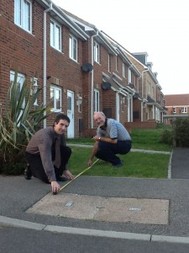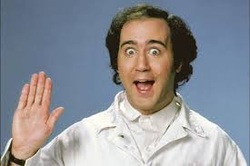| Originally posted 28 Jan 2014 by Julian Dobson @ Huffington Post | You might not have heard of 'kettle boxes' before. They sound innocuous enough; maybe, with the right kind of marketing, even a bit fashionable. Whole meals you can prepare with nothing more than a handy electric kettle. |
This is Britain today. Staff at the Trussell Trust, which coordinates a network offood banks, have come up with the idea of kettle boxes and cold boxes because they're seeing people who cannot afford to heat their food, or simply don't have what's required to do so. Morecambe Bay food bank is giving out a couple of each of these every week to its clients.
When government apologists tell you their welfare reforms are working, they don't tell you about the people surviving on kettle boxes. They know most people won't ask.
The other day a friend told me about people he sees on a Sheffield estate who go into a takeaway twice a day for cheap, fatty food. 'No wonder they're obese,' he said. "They're just bone idle.'"
Another friend was shocked to hear that around 30,000 people in Sheffield are undernourished. 'Don't these people get benefits?' she asked.
Of course some people are bone idle, and not all of them are in the House of Lords. But studies of people who are long term unemployed suggest that most people on out-of-work are desperate to work and have a work ethic at least as strong as those in employment
The people who go to takeaways twice a day may find it cheaper to buy hot snacks than to pay gas and electricity bills. They may be seriously depressed and struggle to find the energy to cook the same basic ingredients week after week. It's much easier, though, if we can assume they're idle and blame them for their predicament.
There are people who struggle with budgeting and who mismanage their income, or who seek oblivion in drink and drugs. It's more obvious when they have little than when they are hidden behind suburban curtains. But the reality is that many more are having to cope with the consequences of decisions taken by others, in particular the unforgivable delays in paying out of work benefits, which leave families relying on friends and charity (see this report on Sheffield food banks, or Church Action on Poverty's Walking the Breadline). This is likely to get even worse as the government targets welfare recipients for the worst of its next tranche of cuts.
This doesn't give people incentives to improve their lives. It's the institutionalised kicking of people when they're down, and my friends' comments show just how successful our political and media culture has been in perpetuating the lie that if your life is in a mess, it's almost certainly your own fault.
What the purveyors of blame fail to recognise is how utterly counterproductive this punitive mentality is. Depriving people of the little they get doesn't make them more able to cope: it only makes them more desperate. They may vanish from the unemployment figures and the claimant count, but they're still with us.
This is why we need to rethink welfare in a way that treats people as adults who can and should make their own choices about their lives. To do that we need to guarantee everyone the basics of life and to centre our policies on human needs, as I argued in this report last year.
Instead of taking away the little people have, a far more positive approach would be to guarantee them a sufficient minimum income to cover all the basics of life. We can then dismantle much of the costly and vindictive apparatus of Jobcentre Plus and the Department of Work and Pensions and redirect those funds to provide real help to those who don't have the skills to manage or who are in crisis.
A basic minimum income isn't a utopian dream. As Frances Coppola has argued, it's an alternative that needs to be considered seriously; and as Matt Leach posted the other week, it's an approach that could take housing in particular out of the ideological battleground and enable landlords to think more creatively about their role in improving their tenants' lives and life chances.
A minimum income could free people to do work that is life-enhancing and builds community, rather than the drudgery of the despairing. It could defuse the culture of blame and finger-pointing that has contaminated political debate and strangled serious thinking about how to built a better society.
What Britain lacks is the political imagination to shift the terms of debate. Until more of us discover and articulate that imagination, we'll be stuck with the worst of solutions: kettle boxes, cold food parcels, and an uncomprehending culture of blame that changes nothing



 RSS Feed
RSS Feed
